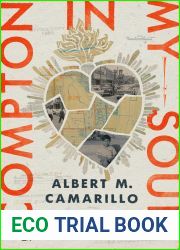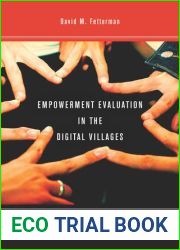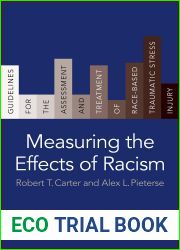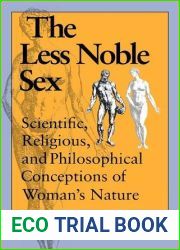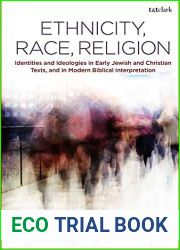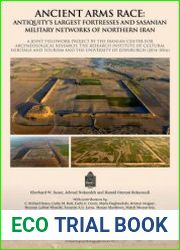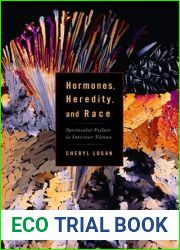
BOOKS - A Troublesome Inheritance: Genes, Race and Human History

A Troublesome Inheritance: Genes, Race and Human History
Author: Nicholas Wade
Year: May 6, 2014
Format: PDF
File size: PDF 2.4 MB
Language: English

Year: May 6, 2014
Format: PDF
File size: PDF 2.4 MB
Language: English

A Troublesome Inheritance: Genes, Race, and Human History In A Troublesome Inheritance, Nicholas Wade presents a groundbreaking and thought-provoking account of the genetic basis of race and its role in shaping human history. Drawing on startling new evidence from the human genome, Wade challenges the widely-held belief that race is a social construct with no biological basis, arguing instead that recent human evolution has played a significant role in shaping the differences between populations. The book delves into the complex and often controversial topic of race and its relationship to human history, offering a nuanced and balanced perspective on this explosive issue. The Consensus View According to the consensus view, human evolution ended in prehistory, with all humans sharing a common ancestry. However, Wade argues that this view cannot be sustained by the evidence, as populations have continued to evolve and adapt in response to changing environments over the past few thousand years. For example, the ability to tolerate lactose in adulthood, a trait that was once rare, has become more common in certain populations, while high-altitude adaptation has also occurred in response to geographical factors.
Хлопотное наследство: гены, раса и история человечества В хлопотном наследстве Николас Уэйд представляет новаторский и заставляющий задуматься отчет о генетической основе расы и ее роли в формировании истории человечества. Опираясь на поразительные новые данные из генома человека, Уэйд бросает вызов широко распространенному убеждению, что раса является социальной конструкцией без биологической основы, утверждая, что недавняя эволюция человека сыграла значительную роль в формировании различий между популяциями. Книга углубляется в сложную и часто спорную тему расы и её отношения к человеческой истории, предлагая нюансированный и сбалансированный взгляд на этот взрывоопасный вопрос. Консенсусная точка зрения Согласно консенсусной точке зрения, эволюция человека закончилась в предыстории, когда все люди имели общее происхождение. Тем не менее, Уэйд утверждает, что эта точка зрения не может быть подкреплена доказательствами, поскольку популяции продолжали развиваться и адаптироваться в ответ на изменение окружающей среды в течение последних нескольких тысяч лет. Например, способность переносить лактозу в зрелом возрасте, признак, который когда-то был редким, стала более распространенной в определенных популяциях, в то время как высотная адаптация также произошла в ответ на географические факторы.
L'héritage gênant : les gènes, la race et l'histoire de l'humanité Dans l'héritage gênant, Nicholas Wade présente un rapport novateur et réfléchissant sur la base génétique de la race et son rôle dans la formation de l'histoire de l'humanité. S'appuyant sur de nouvelles données étonnantes provenant du génome humain, Wade remet en question la croyance largement répandue que la race est une construction sociale sans fondement biologique, affirmant que l'évolution récente de l'homme a joué un rôle important dans la formation des différences entre les populations. livre explore le sujet complexe et souvent controversé de la race et de son rapport à l'histoire humaine, offrant une vision nuancée et équilibrée de cette question explosive. Point de vue consensuel Selon le point de vue consensuel, l'évolution de l'homme a pris fin dans une histoire où tous les êtres humains avaient une origine commune. Cependant, Wade soutient que ce point de vue ne peut être étayé par des preuves puisque les populations ont continué d'évoluer et de s'adapter en réponse aux changements environnementaux au cours des quelques milliers d'années écoulées. Par exemple, la capacité de tolérer le lactose à l'âge adulte, un signe autrefois rare, est devenue plus courante dans certaines populations, tandis que l'adaptation à l'altitude a également eu lieu en réponse à des facteurs géographiques.
Herencia problemática: genes, raza e historia de la humanidad En una herencia problemática, Nicholas Wade presenta un relato innovador y que hace reflexionar sobre la base genética de la raza y su papel en la formación de la historia de la humanidad. Basándose en nuevos y sorprendentes datos del genoma humano, Wade desafía la creencia generalizada de que la raza es una construcción social sin base biológica, argumentando que la evolución humana reciente ha jugado un papel significativo en la formación de diferencias entre poblaciones. libro profundiza en el complejo y a menudo polémico tema de la raza y su relación con la historia humana, ofreciendo una visión matizada y equilibrada de esta explosiva cuestión. Punto de vista consensuado Según el punto de vista consensuado, la evolución humana terminó en la prehistoria, cuando todos los seres humanos tenían un origen común. n embargo, Wade sostiene que este punto de vista no puede ser respaldado por la evidencia, ya que las poblaciones han continuado desarrollándose y adaptándose en respuesta al cambio ambiental durante los últimos miles de . Por ejemplo, la capacidad de tolerar la lactosa en la edad adulta, un rasgo que alguna vez fue raro, se ha vuelto más común en ciertas poblaciones, mientras que la adaptación a gran altitud también se ha producido en respuesta a factores geográficos.
Eredità fastidiosa: geni, razza e storia dell'umanità Nella complessa eredità, Nicholas Wade presenta un rapporto innovativo e riflettente sulla base genetica della razza e sul suo ruolo nella formazione della storia umana. Basandosi su sorprendenti nuovi dati sul genoma umano, Wade sfida la convinzione diffusa che la razza sia un progetto sociale senza basi biologiche, sostenendo che la recente evoluzione umana ha avuto un ruolo significativo nel creare differenze tra le popolazioni. Il libro si approfondisce nel complesso e spesso controverso tema della razza e del suo rapporto con la storia umana, offrendo una visione sfumata ed equilibrata di questa questione esplosiva. Punto di vista consensuale Secondo un punto di vista consensuale, l'evoluzione umana è finita in una storia in cui tutti gli esseri umani avevano una origine comune. Tuttavia, Wade sostiene che questo punto di vista non può essere supportato dalle prove, perché le popolazioni hanno continuato a svilupparsi e ad adattarsi in risposta al cambiamento ambientale negli ultimi migliaia di anni. Ad esempio, la capacità di sopportare il lattosio in età adulta, un segno che un tempo era raro, è diventato più comune in alcune popolazioni, mentre l'adattamento in altezza è avvenuto anche in risposta a fattori geografici.
Mühseliges Erbe: Gene, Rasse und Geschichte der Menschheit In einem mühsamen Erbe präsentiert Nicholas Wade einen bahnbrechenden und zum Nachdenken anregenden Bericht über die genetische Grundlage der Rasse und ihre Rolle bei der Gestaltung der Geschichte der Menschheit. Wade stützt sich auf erstaunliche neue Daten aus dem menschlichen Genom und stellt die weit verbreitete Überzeugung in Frage, dass Rasse ein soziales Konstrukt ohne biologische Grundlage ist, und argumentiert, dass die jüngste menschliche Evolution eine bedeutende Rolle bei der Bildung von Unterschieden zwischen Populationen gespielt hat. Das Buch vertieft sich in das komplexe und oft kontroverse Thema Rasse und ihre Beziehung zur Menschheitsgeschichte und bietet eine differenzierte und ausgewogene cht auf diese brisante Frage. Konsens-Standpunkt Nach dem Konsens-Standpunkt endete die Evolution des Menschen in der Vorgeschichte, als alle Menschen einen gemeinsamen Ursprung hatten. Wade argumentiert jedoch, dass diese Ansicht nicht durch Beweise gestützt werden kann, da sich die Populationen in den letzten Tausenden von Jahren als Reaktion auf Umweltveränderungen weiterentwickelt und angepasst haben. Zum Beispiel ist die Fähigkeit, Laktose im Erwachsenenalter zu tolerieren, ein Merkmal, das einst selten war, in bestimmten Populationen häufiger geworden, während Höhenanpassung auch als Reaktion auf geografische Faktoren aufgetreten ist.
Kłopotliwe dziedzictwo: Geny, rasa i historia ludzka W kłopotliwym spadku, Nicholas Wade przedstawia innowacyjne i prowokujące do myślenia relację genetycznej podstawy rasy i jej roli w kształtowaniu historii ludzkości. Opierając się na uderzających nowych dowodach z ludzkiego genomu, Wade kwestionuje powszechne przekonanie, że rasa jest konstrukcją społeczną bez podstaw biologicznych, argumentując, że niedawna ewolucja człowieka odegrała znaczącą rolę w kształtowaniu różnic między populacjami. Książka zagłębia się w złożony i często kontrowersyjny temat rasy i jej związku z historią ludzkości, oferując zniuansowany i zrównoważony pogląd na ten wybuchowy problem. Pogląd konsensualny Zgodnie z konsensusem ewolucja ludzka zakończyła się prehistorią, gdy wszyscy ludzie mieli wspólne pochodzenie. Wade twierdzi jednak, że tego poglądu nie można poprzeć dowodami, ponieważ populacje nadal się rozwijały i dostosowywały w odpowiedzi na zmiany w środowisku w ciągu ostatnich kilku tysięcy lat. Na przykład, zdolność do tolerowania laktozy w dorosłym wieku, cecha, która była niegdyś rzadka, stała się bardziej powszechna w niektórych populacjach, podczas gdy adaptacja wysokości wystąpiła również w odpowiedzi na czynniki geograficzne.
ירושה בעייתית: גנים, גזע והיסטוריה אנושית בירושה בעייתית, ניקולס וייד מציג תיאור חדשני ומעורר מחשבה של הבסיס הגנטי של הגזע ותפקידו בעיצוב ההיסטוריה האנושית. ווייד משרטט ראיות חדשות מהגנום האנושי ומאתגר את האמונה הרווחת שהגזע הוא מבנה חברתי ללא בסיס ביולוגי, וטוען שהאבולוציה האנושית האחרונה מילאה תפקיד משמעותי בעיצוב ההבדלים בין האוכלוסיות. הספר מתעמק בנושא המורכב והשנוי במחלוקת של הגזע והיחס שלו להיסטוריה האנושית, ומציע השקפה מאוזנת ומאוזנת על סוגיה נפיצה זו. על ־ פי השקפת הקונסנזוס, האבולוציה האנושית הסתיימה בפרהיסטוריה כאשר לכל בני האדם היה מוצא משותף. עם זאת, ווייד טוען כי השקפה זו לא יכולה להיות נתמכת על ידי ראיות שכן אוכלוסיות המשיכו להתפתח ולהסתגל בתגובה לשינוי סביבתי במהלך כמה אלפי השנים האחרונות. לדוגמה, היכולת לסבול לקטוז בבגרות, תכונה שהייתה בעבר נדירה, הפכה נפוצה יותר באוכלוסיות מסוימות, בעוד שהתאמת הגובה התרחשה גם בתגובה לגורמים גיאוגרפיים.''
Zahmetli Kalıtım: Zahmetli Kalıtımda Genler, Irk ve İnsanlık Tarihi Nicholas Wade, ırkın genetik temeli ve insanlık tarihini şekillendirmedeki rolü hakkında yenilikçi ve düşündürücü bir açıklama sunuyor. Wade, insan genomundan gelen çarpıcı yeni kanıtlara dayanarak, ırkın biyolojik bir temeli olmayan sosyal bir yapı olduğuna dair yaygın inanca meydan okuyor ve son insan evriminin popülasyonlar arasındaki farklılıkları şekillendirmede önemli bir rol oynadığını savunuyor. Kitap, ırkın karmaşık ve çoğu zaman tartışmalı konusunu ve insanlık tarihiyle ilişkisini ele alıyor ve bu patlayıcı meselenin incelikli ve dengeli bir görünümünü sunuyor. Fikir birliği görüşü Fikir birliği görüşüne göre, insan evrimi, tüm insanlar ortak bir kökeni paylaştığında tarih öncesi ile sona erdi. Bununla birlikte, Wade, bu görüşün, popülasyonların son birkaç bin yılda çevresel değişime yanıt olarak gelişmeye ve uyum sağlamaya devam ettiği için kanıtlarla desteklenemeyeceğini savunuyor. Örneğin, bir zamanlar nadir görülen bir özellik olan yetişkinlikte laktozu tolere etme yeteneği, bazı popülasyonlarda daha yaygın hale gelirken, yükseklik adaptasyonu da coğrafi faktörlere yanıt olarak ortaya çıkmıştır.
الميراث المزعج: الجينات والعرق والتاريخ البشري في الميراث المزعج، يقدم نيكولاس وايد سردًا مبتكرًا ومثيرًا للتفكير للأساس الجيني للعرق ودوره في تشكيل تاريخ البشرية. بالاعتماد على أدلة جديدة مذهلة من الجينوم البشري، يتحدى وايد الاعتقاد السائد بأن العرق هو بناء اجتماعي بدون أساس بيولوجي، بحجة أن التطور البشري الأخير لعب دورًا مهمًا في تشكيل الاختلافات بين السكان. يتعمق الكتاب في موضوع العرق المعقد والمثير للجدل في كثير من الأحيان وعلاقته بالتاريخ البشري، ويقدم نظرة دقيقة ومتوازنة لهذه القضية المتفجرة. وفقًا لوجهة النظر الإجماعية، انتهى التطور البشري في عصور ما قبل التاريخ عندما اشترك جميع البشر في أصل مشترك. ومع ذلك، يجادل ويد بأن هذا الرأي لا يمكن دعمه بالأدلة حيث استمر السكان في التطور والتكيف استجابة للتغير البيئي على مدى عدة آلاف من السنين الماضية. على سبيل المثال، أصبحت القدرة على تحمل اللاكتوز في مرحلة البلوغ، وهي سمة كانت نادرة في يوم من الأيام، أكثر شيوعًا في مجموعات سكانية معينة، بينما حدث التكيف مع الارتفاع أيضًا استجابة للعوامل الجغرافية.
麻煩的遺產:基因、種族和人類歷史在麻煩的遺產中,尼古拉斯·韋德提出了關於種族的遺傳基礎及其在塑造人類歷史中的作用的創新和令人反思的敘述。韋德(Wade)依靠來自人類基因組的驚人新數據,挑戰了廣泛的信念,即種族是沒有生物學基礎的社會結構,認為人類最近的進化在塑造種群之間的差異方面發揮了重要作用。這本書深入探討了種族及其與人類歷史的關系的復雜且經常引起爭議的主題,為這個爆炸性問題提供了細微而平衡的觀點。共識的觀點根據共識的觀點,人類進化在背景故事中結束,當時所有人類都有共同的起源。但是,韋德認為,由於過去幾千來人口不斷發展和適應環境變化,這種觀點無法得到證據的支持。例如,成後耐受乳糖的能力曾經是罕見的特征,在某些人群中變得更加普遍,而高海拔適應也響應地理因素而發生。





















